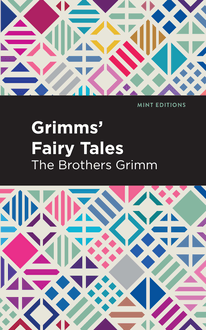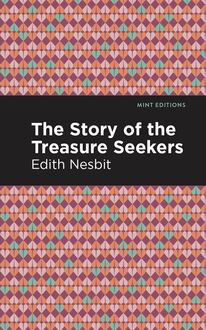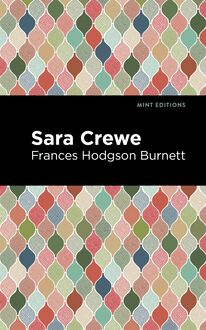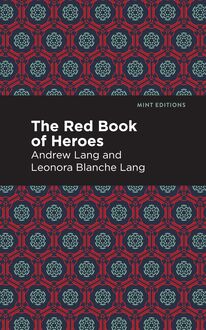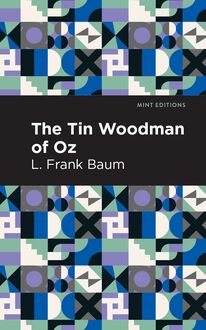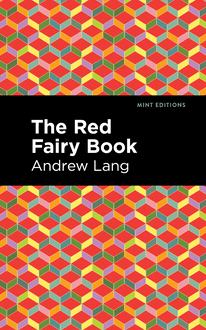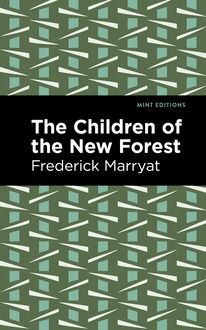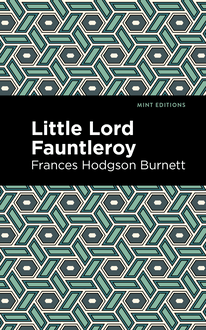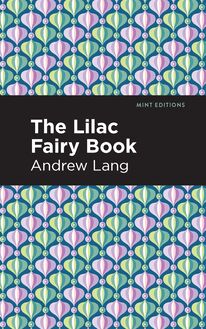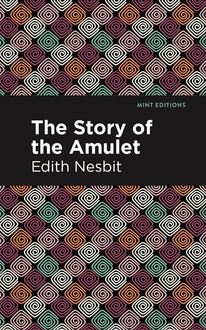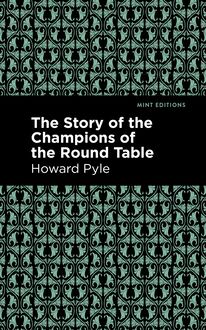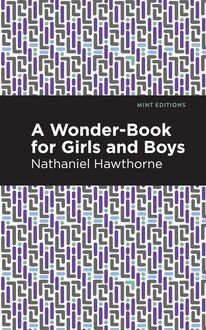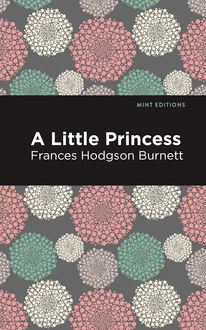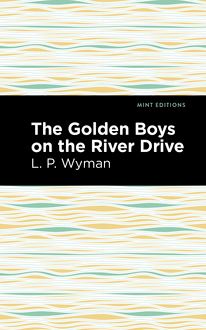-
 Univers
Univers
-
 Ebooks
Ebooks
-
 Livres audio
Livres audio
-
 Presse
Presse
-
 Podcasts
Podcasts
-
 BD
BD
-
 Documents
Documents
-
- Cours
- Révisions
- Ressources pédagogiques
- Sciences de l’éducation
- Manuels scolaires
- Langues
- Travaux de classe
- Annales de BEP
- Etudes supérieures
- Maternelle et primaire
- Fiches de lecture
- Orientation scolaire
- Méthodologie
- Corrigés de devoir
- Annales d’examens et concours
- Annales du bac
- Annales du brevet
- Rapports de stage
La lecture à portée de main
Vous pourrez modifier la taille du texte de cet ouvrage
Découvre YouScribe en t'inscrivant gratuitement
Je m'inscrisDécouvre YouScribe en t'inscrivant gratuitement
Je m'inscrisEn savoir plus
Vous pourrez modifier la taille du texte de cet ouvrage
En savoir plus

Description
“The most influential anticruelty novel of all time.”-Bernard Unti
Black Beauty (1877), the only novel from Anna Sewell, was the first book ever written from the singular viewpoint of an animal. The fictional narrative, told by Black Beauty, a genial thoroughbred, was initially written by the author “to induce kindness, sympathy, and an understanding treatment of horses.” Over time the book has become a classic book for children, despite its initial adult readership. The book is considered the advent of the Anthropomorphic literary genre.
Black Beauty, the gentle horse and narrator of the story, begins with recollection of an idyllic youth with his mother and other kind horses. When Black Beauty is four years old, his owner sells him to Squire Gordon, who provides a caring home among other horses. One of the squire’s other horses, a headstrong chestnut named Ginger, becomes Black Beauty’s best friend. When the squire’s wife becomes seriously ill, the couple are forced to sell their horses; in a heartbreaking turn of events, Black Beauty is sold in a succession of transactions where he is mistreated, overworked, and separated from Ginger. Although scarred, Black Beauty is resilient and eventually is returned to a life of kindness and care. This deeply moving story aimed towards the awareness of animal welfare was influential reforms in the laws regarding the treatment of horses; yet, its enduring legacy is the massage of compassion that has touched readers for more than 200 years.
With an eye-catching new cover, and professionally typeset manuscript, this edition of Black Beauty is both modern and readable.
Sujets
Informations
| Publié par | Mint Editions |
| Date de parution | 06 octobre 2020 |
| Nombre de lectures | 0 |
| EAN13 | 9781513273129 |
| Langue | English |
| Poids de l'ouvrage | 2 Mo |
Informations légales : prix de location à la page 0,0500€. Cette information est donnée uniquement à titre indicatif conformément à la législation en vigueur.
Extrait
Black Beauty
Anna Sewell
Black Beauty was first published in 1877.
This edition published by Mint Editions 2020.
ISBN 9781513266176 | E-ISBN 9781513273129
Published by Mint Editions®
minteditionbooks.com
Publishing Director: Jennifer Newens
Project Manager: Gabrielle Maudiere
Design & Production: Rachel Lopez Metzger
Typesetting: Westchester Publishing Services
C ONTENTS P ART I I . M Y E ARLY H OME II . T HE H UNT III . M Y B REAKING I N IV . B IRTWICK P ARK V . A F AIR S TART VI . L IBERTY VII . G INGER VIII . G INGER’S S TORY C ONTINUED IX . M ERRYLEGS X . A T ALK IN THE O RCHARD XI . P LAIN S PEAKING XII . A S TORMY D AY XIII . T HE D EVIL’S T RADE M ARK XIV . J AMES H OWARD XV . T HE O LD H OSTLER XVI . T HE F IRE XVII . J OHN M ANLY’S T ALK XV III . G OING FOR THE D OCTOR XIX . O NLY I GNORANCE XX . J OE G REEN XXI . T HE P ARTING P ART II XXII . E ARLSHALL XXIII . A S TRIKE FOR L IBERTY XXIV . T HE L ADY A NNE, OR A R UNAWAY H ORSE XX V . R EUBEN S MITH XXVI . H OW IT E NDED X XVII . R UINED AND G OING D OWNHILL XXVIII . A J OB H ORSE AND H IS D RIVERS XXIX . C OCKNEYS XXX . A T HIEF XXXI . A H UMBUG P ART III XXXII . A H ORSE F AIR XXXIII . A L ONDON C AB H ORSE XXXIV . A N O LD W AR H ORSE XXX V . J ERRY B ARKER XXXVI . T HE S UNDAY C AB XXXVII . T HE G OLDEN R ULE XXX VIII . D OLLY AND A R EAL G ENTLEMAN XXXIX . S EEDY S AM XL . P OOR G INGER XLI . T HE B UTCHER XLII . T HE E LECTION XLIII . A F RIEND IN N EED XLIV . O LD C APTAIN AND H IS S UCCESSOR XLV . J ERRY’S N EW Y EAR P ART IV XLVI . J AKES AND THE L ADY XLVII . H ARD T IMES XLV III . F ARMER T HOROUGHGOOD AND H IS G RANDSON W ILLIE XLIX . M Y L AST H OME
PART I
Chapter I
M Y E ARLY H OME
T he first place that I can well remember was a large pleasant meadow with a pond of clear water in it. Some shady trees leaned over it, and rushes and water-lilies grew at the deep end. Over the hedge on one side we looked into a plowed field, and on the other we looked over a gate at our master’s house, which stood by the roadside; at the top of the meadow was a grove of fir trees, and at the bottom a running brook overhung by a steep bank.
While I was young I lived upon my mother’s milk, as I could not eat grass. In the daytime I ran by her side, and at night I lay down close by her. When it was hot we used to stand by the pond in the shade of the trees, and when it was cold we had a nice warm shed near the grove.
As soon as I was old enough to eat grass my mother used to go out to work in the daytime, and come back in the evening.
There were six young colts in the meadow besides me; they were older than I was; some were nearly as large as grown-up horses. I used to run with them, and had great fun; we used to gallop all together round and round the field as hard as we could go. Sometimes we had rather rough play, for they would frequently bite and kick as well as gallop.
One day, when there was a good deal of kicking, my mother whinnied to me to come to her, and then she said:
“I wish you to pay attention to what I am going to say to you. The colts who live here are very good colts, but they are cart-horse colts, and of course they have not learned manners. You have been well-bred and well-born; your father has a great name in these parts, and your grandfather won the cup two years at the Newmarket races; your grandmother had the sweetest temper of any horse I ever knew, and I think you have never seen me kick or bite. I hope you will grow up gentle and good, and never learn bad ways; do your work with a good will, lift your feet up well when you trot, and never bite or kick even in play.”
I have never forgotten my mother’s advice; I knew she was a wise old horse, and our master thought a great deal of her. Her name was Duchess, but he often called her Pet.
Our master was a good, kind man. He gave us good food, good lodging, and kind words; he spoke as kindly to us as he did to his little children. We were all fond of him, and my mother loved him very much. When she saw him at the gate she would neigh with joy, and trot up to him. He would pat and stroke her and say, “Well, old Pet, and how is your little Darkie?” I was a dull black, so he called me Darkie; then he would give me a piece of bread, which was very good, and sometimes he brought a carrot for my mother. All the horses would come to him, but I think we were his favorites. My mother always took him to the town on a market day in a light gig.
There was a plowboy, Dick, who sometimes came into our field to pluck blackberries from the hedge. When he had eaten all he wanted he would have what he called fun with the colts, throwing stones and sticks at them to make them gallop. We did not much mind him, for we could gallop off; but sometimes a stone would hit and hurt us.
One day he was at this game, and did not know that the master was in the next field; but he was there, watching what was going on; over the hedge he jumped in a snap, and catching Dick by the arm, he gave him such a box on the ear as made him roar with the pain and surprise. As soon as we saw the master we trotted up nearer to see what went on.
“Bad boy!” he said, “bad boy! to chase the colts. This is not the first time, nor the second, but it shall be the last. There—take your money and go home; I shall not want you on my farm again.” So we never saw Dick any more. Old Daniel, the man who looked after the horses, was just as gentle as our master, so we were well off.
Chapter II
T HE H UNT
B efore I was two years old a circumstance happened which I have never forgotten. It was early in the spring; there had been a little frost in the night, and a light mist still hung over the woods and meadows. I and the other colts were feeding at the lower part of the field when we heard, quite in the distance, what sounded like the cry of dogs. The oldest of the colts raised his head, pricked his ears, and said, “There are the hounds!” and immediately cantered off, followed by the rest of us to the upper part of the field, where we could look over the hedge and see several fields beyond. My mother and an old riding horse of our master’s were also standing near, and seemed to know all about it.
“They have found a hare,” said my mother, “and if they come this way we shall see the hunt.”
And soon the dogs were all tearing down the field of young wheat next to ours. I never heard such a noise as they made. They did not bark, nor howl, nor whine, but kept on a “yo! yo, o, o! yo! yo, o, o!” at the top of their voices. After them came a number of men on horseback, some of them in green coats, all galloping as fast as they could. The old horse snorted and looked eagerly after them, and we young colts wanted to be galloping with them, but they were soon away into the fields lower down; here it seemed as if they had come to a stand; the dogs left off barking, and ran about every way with their noses to the ground.
“They have lost the scent,” said the old horse; “perhaps the hare will get off.”
“What hare?” I said.
“Oh! I don’t know what hare; likely enough it may be one of our own hares out of the woods; any hare they can find will do for the dogs and men to run after;” and before long the dogs began their “yo! yo, o, o!” again, and back they came altogether at full speed, making straight for our meadow at the part where the high bank and hedge overhang the brook.
“Now we shall see the hare,” said my mother; and just then a hare wild with fright rushed by and made for the woods. On came the dogs; they burst over the bank, leaped the stream, and came dashing across the field followed by the huntsmen. Six or eight men leaped their horses clean over, close upon the dogs. The hare tried to get through the fence; it was too thick, and she turned sharp round to make for the road, but it was too late; the dogs were upon her with their wild cries; we heard one shriek, and that was the end of her. One of the huntsmen rode up and whipped off the dogs, who would soon have torn her to pieces. He held her up by the leg torn and bleeding, and all the gentlemen seemed well pleased.
As for me, I was so astonished that I did not at first see what was going on by the brook; but when I did look there was a sad sight; two fine horses were down, one was struggling in the stream, and the other was groaning on the grass. One of the riders was getting out of the water covered with mud, the other lay quite still.
“His neck is broke,” said my mother.
“And serve him right, too,” said one of the colts.
I thought the same, but my mother did not join with us.
“Well, no,” she said, “you must not say that; but though I am an old horse, and have seen and heard a great deal, I never yet could make out why men are so fond of this sport; they often hurt themselves, often spoil good horses, and tear up the fields, and all for a hare or a fox, or a stag, that they could get more easily some other way; but we are only horses, and don’t know.”
While my mother was saying this we stood and looked on. Many of the riders had gone to the young man; but my master, who had been watching what was going on, was the first to raise him. His head fell back and his arms hung down, and every one looked very serious. There was no noise now; even the dogs were quiet, and seemed to know that something was wrong. They carried him to our master’s house. I heard afterward that it was young George Gordon, the squire’s only son, a fine, tall young man, and the pride of his family.
There was now riding off in all directions to the doctor’s, to the farrier’s, and no doubt to Squire Gordon’s, to let him know about his son. When Mr. Bond, the farrier, came to look at the black horse that lay groaning on the grass, he felt him all over, and shook his head; one of his legs was broken. Then some one ran to our master’s house and came back with a gun; presently there was a loud bang and a dreadful shriek, and then all was still; the black horse moved no
-
 Univers
Univers
-
 Ebooks
Ebooks
-
 Livres audio
Livres audio
-
 Presse
Presse
-
 Podcasts
Podcasts
-
 BD
BD
-
 Documents
Documents
-
Jeunesse
-
Littérature
-
Ressources professionnelles
-
Santé et bien-être
-
Savoirs
-
Education
-
Loisirs et hobbies
-
Art, musique et cinéma
-
Actualité et débat de société
-
Jeunesse
-
Littérature
-
Ressources professionnelles
-
Santé et bien-être
-
Savoirs
-
Education
-
Loisirs et hobbies
-
Art, musique et cinéma
-
Actualité et débat de société
-
Actualités
-
Lifestyle
-
Presse jeunesse
-
Presse professionnelle
-
Pratique
-
Presse sportive
-
Presse internationale
-
Culture & Médias
-
Action et Aventures
-
Science-fiction et Fantasy
-
Société
-
Jeunesse
-
Littérature
-
Ressources professionnelles
-
Santé et bien-être
-
Savoirs
-
Education
-
Loisirs et hobbies
-
Art, musique et cinéma
-
Actualité et débat de société
- Cours
- Révisions
- Ressources pédagogiques
- Sciences de l’éducation
- Manuels scolaires
- Langues
- Travaux de classe
- Annales de BEP
- Etudes supérieures
- Maternelle et primaire
- Fiches de lecture
- Orientation scolaire
- Méthodologie
- Corrigés de devoir
- Annales d’examens et concours
- Annales du bac
- Annales du brevet
- Rapports de stage
